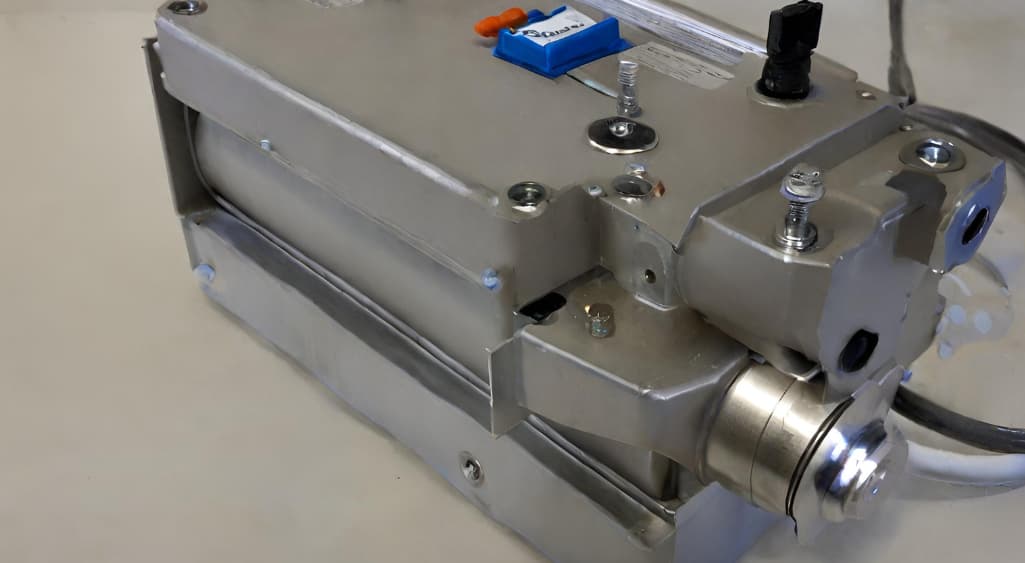In the complex world of heating, ventilation, and air conditioning (HVAC) systems, damper actuators play a pivotal role in regulating airflow and maintaining indoor comfort. These mechanical devices ensure that the right amount of conditioned air is delivered to different areas of a building. However, like any mechanical component, damper actuators require regular maintenance to function optimally and efficiently. In this blog post, we’ll explore why proper damper actuator maintenance is crucial for the smooth operation of HVAC systems.
What Are Damper Actuators?
Before we delve into the importance of maintenance, let’s briefly understand what damper actuators are and their role in HVAC systems. Damper actuators are devices that control the position of dampers, which are movable plates or valves used to regulate airflow within ducts or vents. These actuators are typically electric, pneumatic, or spring-return based, and they ensure that the right amount of conditioned air is distributed to various zones, providing temperature control and energy efficiency.
The Consequences of Neglecting Maintenance
Neglecting the maintenance of KMC damper actuators can have significant consequences for HVAC systems and the overall comfort of a building. When maintenance is ignored or postponed, several issues can arise:
Reduced Efficiency: Damper actuators that are not properly maintained may not function correctly, leading to reduced energy efficiency. HVAC systems will have to work harder to compensate for the inefficiencies, resulting in higher energy bills.
Inconsistent Airflow: Lack of maintenance can cause damper actuators to become stuck or operate erratically. This can lead to uneven airflow, resulting in some areas of a building being too hot or too cold.
Increased Wear and Tear: Damper actuators subjected to prolonged neglect are more likely to experience wear and tear, potentially leading to costly repairs or replacements.
Decreased Lifespan: Over time, the lifespan of damper actuators can be significantly shortened if they are not properly maintained. This can result in the need for premature replacements.
Benefits of Regular Damper Actuator Maintenance
On the flip side, there are numerous benefits to be gained from regular damper actuator maintenance:
Extended Lifespan: Proper maintenance helps damper actuators operate smoothly, significantly extending their lifespan.
Improved Energy Efficiency: Well-maintained damper actuators ensure that HVAC systems operate at peak efficiency, reducing energy consumption and costs.
Consistent Performance: Regular maintenance ensures that damper actuators perform their intended functions consistently, leading to a comfortable and evenly heated or cooled environment.
Components of Damper Actuator Maintenance
To ensure that damper actuators function optimally, several maintenance tasks should be performed regularly:
Cleaning and Lubrication: Clean the actuators and lubricate moving parts as needed to prevent dust and debris buildup that can impede their operation.
Inspection of Electrical Connections: Check electrical connections and wiring to ensure they are secure and free from damage or corrosion.
Calibration Checks: Calibrate damper actuators to ensure they are accurately controlling the position of dampers.
It’s important to note that maintenance should be carried out following manufacturer guidelines and schedules to ensure the best results and to avoid any potential voiding of warranties.
Regular Inspection and Testing
Routine inspection and functional testing of damper actuators are crucial for identifying issues before they become critical. By periodically checking for proper operation and responsiveness, potential problems can be detected early and addressed promptly, preventing costly breakdowns and system inefficiencies.
Hiring Professional Services
While some maintenance tasks can be performed by building or facility maintenance personnel, there may be instances where it’s advisable to hire professional technicians. These technicians have the expertise and specialized tools required to perform comprehensive maintenance, ensuring that all components of the damper actuators are in good working condition.
Tips for DIY Maintenance
For those who wish to perform some maintenance tasks on their own, here are some basic tips:
Visual Inspections: Regularly inspect damper actuators for signs of wear, damage, or accumulation of dirt and debris.
Cleaning: Clean the actuators by wiping away dust and debris with a soft, dry cloth. Ensure that the actuator is powered off before cleaning.
Lubrication: If the manufacturer recommends it, apply lubrication to moving parts as specified in the maintenance manual.
Electrical Checks: Visually inspect electrical connections for loose wires or signs of damage. Ensure that power to the actuator is safely disconnected before conducting any electrical checks.
Maintenance Schedule and Records
Establishing a maintenance schedule for damper actuators is essential for consistent upkeep. Keeping detailed records of maintenance activities, including dates and any issues found, can help track the performance and history of each damper actuator. This documentation is valuable for future reference and for planning future maintenance tasks.
Conclusion
In the world of HVAC systems, damper actuators are unsung heroes, quietly ensuring that indoor environments remain comfortable and energy-efficient. Proper damper actuator maintenance is essential to prevent the consequences of neglect, such as reduced efficiency, inconsistent airflow, and premature wear and tear. By investing in regular maintenance, building owners and facility managers can extend the lifespan of their damper actuators, optimize energy efficiency, and ensure the comfort of occupants.
Regular inspection, testing, and adherence to manufacturer guidelines are key to effective maintenance. While some tasks can be performed by building maintenance personnel, professional technicians may be needed for comprehensive maintenance. Whether you choose to perform maintenance in-house or hire professionals, the benefits of a well-maintained damper actuator system are well worth the effort. In the end, proper maintenance ensures that these critical components continue to work quietly and efficiently behind the scenes, contributing to the overall success of your HVAC system.
